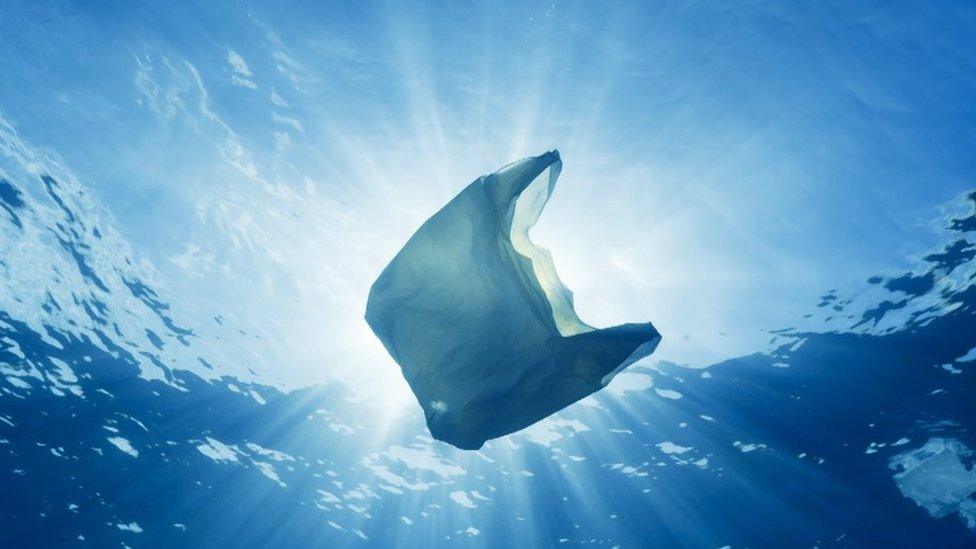Morrisons brings back paper bags in latest fight against plastic
- Published
- comments
Theresa May has pledged to eradicate all avoidable plastic waste in the UK by 2042
Morrisons has started selling fresh produce in old-style paper bags, rather than plastic ones, as it tries to cut the use of plastics.
The supermarket chain, the UK's fourth largest, says it will mean 150 million fewer plastic bags are used each year.
Prime Minister Theresa May has called plastic waste "one of the great environmental scourges of our time".
The UK has a target to ban "avoidable" waste by 2042 and all supermarkets are taking firm steps to cut plastics use.
Interest in the issue was ignited by Sir David Attenborough's TV series Blue Planet II, whose shots of an ocean of floating plastic debris horrified many viewers.
About 6.3 billion tonnes of plastic waste had been generated globally by 2015, with almost 80% of it going to landfills or the natural environment.
All major supermarkets have introduced programmes and targets to reduce, and in some cases eliminate, single-use plastics.
In January this year, Iceland said it would eliminate or drastically reduce plastic packaging of all its own-label products by the end of 2023.

Is paper more environmentally friendly than plastic?
Analysis by BBC Reality Check
The figures are disputed but it does appear that the production of paper bags uses more energy and creates more CO2 emissions than the manufacture of plastic bags.
And there is no question that paper bags are bulkier and heavier than plastic bags and so take more energy to transport and more space in bins.
But that's not the whole story.
New forests grown to replace trees cut to make paper bags will help in the battle against climate change by locking up carbon from the atmosphere.
Paper also decomposes quickly into natural products, while plastic breaks down into tiny particles that can get into the food chain and can potentially stay around for hundreds of years.
Environmental groups say that what's needed in the longer term is a move away from single-use bags altogether.

Marks & Spencer says that by 2022 all its product packaging in the UK that could end up with customers will be "widely recyclable" - not just recyclable in theory, but in reality. It is replacing plastic cutlery with wooden alternatives and swapping plastic straws for paper ones.
In April, leading supermarkets joined other major industry groups by signing up to sustainability campaign group WRAP's Plastic Pact, whose goals include ensuring that, by 2025, 100% of plastic packaging is reusable, recyclable or compostable.
Morrisons says its new paper bags are made from 100% recyclable paper. They will have a see-though paper strip - so that customers and Morrisons colleagues can identify the produce contained within.
It is also encouraging customers to help in cutting down plastics waste by bringing their own containers to the butchers and fishmongers counters in return for extra loyalty points.
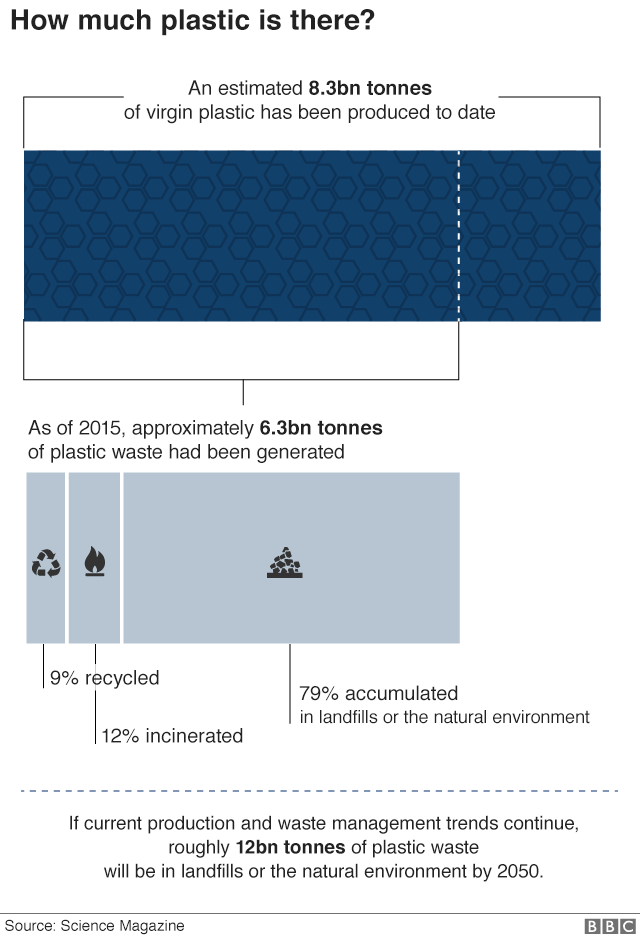
- Published22 June 2018
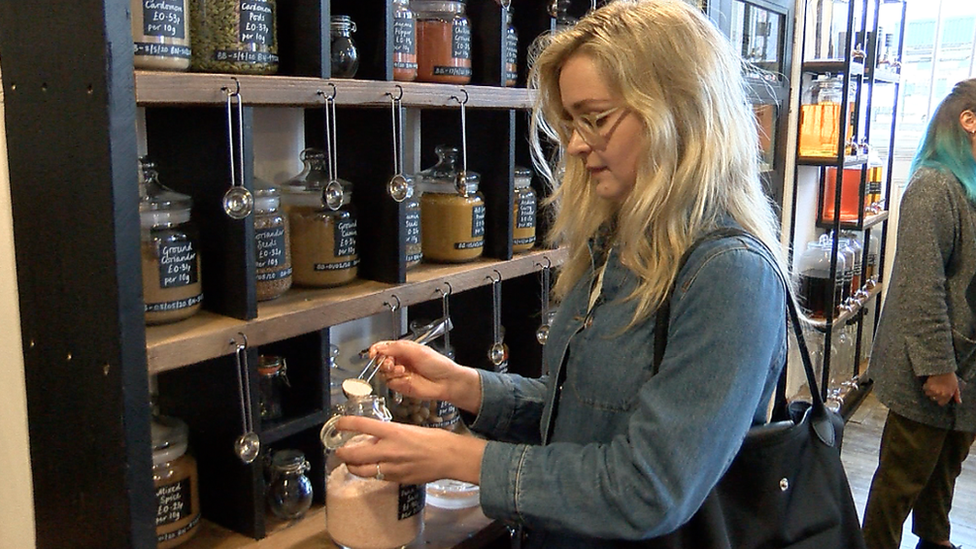
- Published12 January 2018
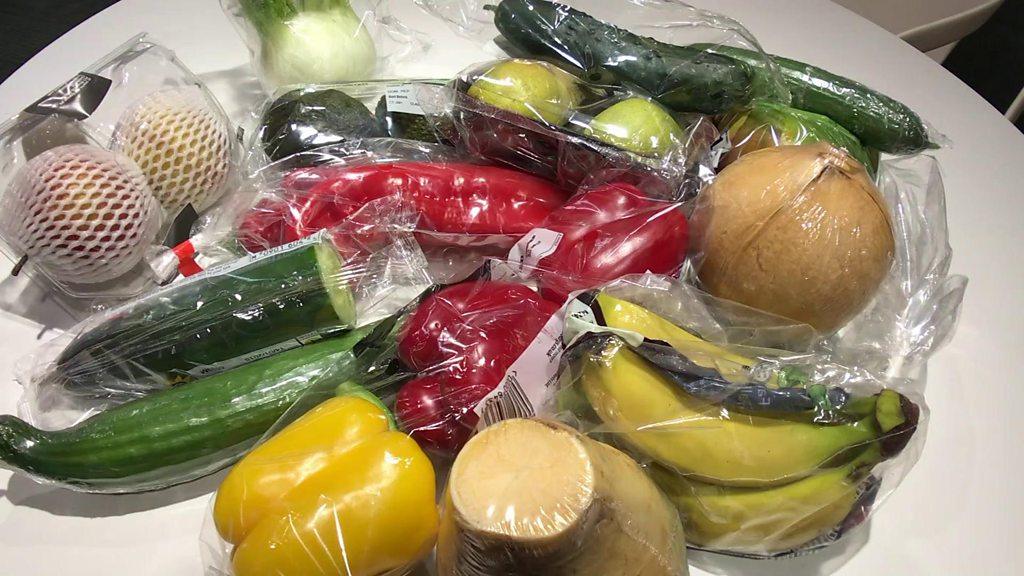
- Published9 March 2018
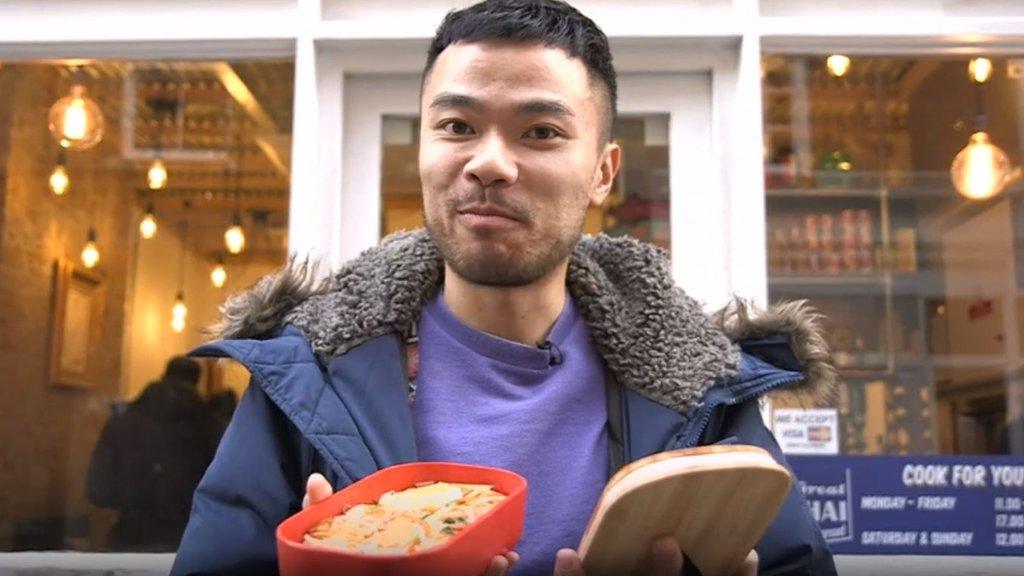
- Published31 May 2018
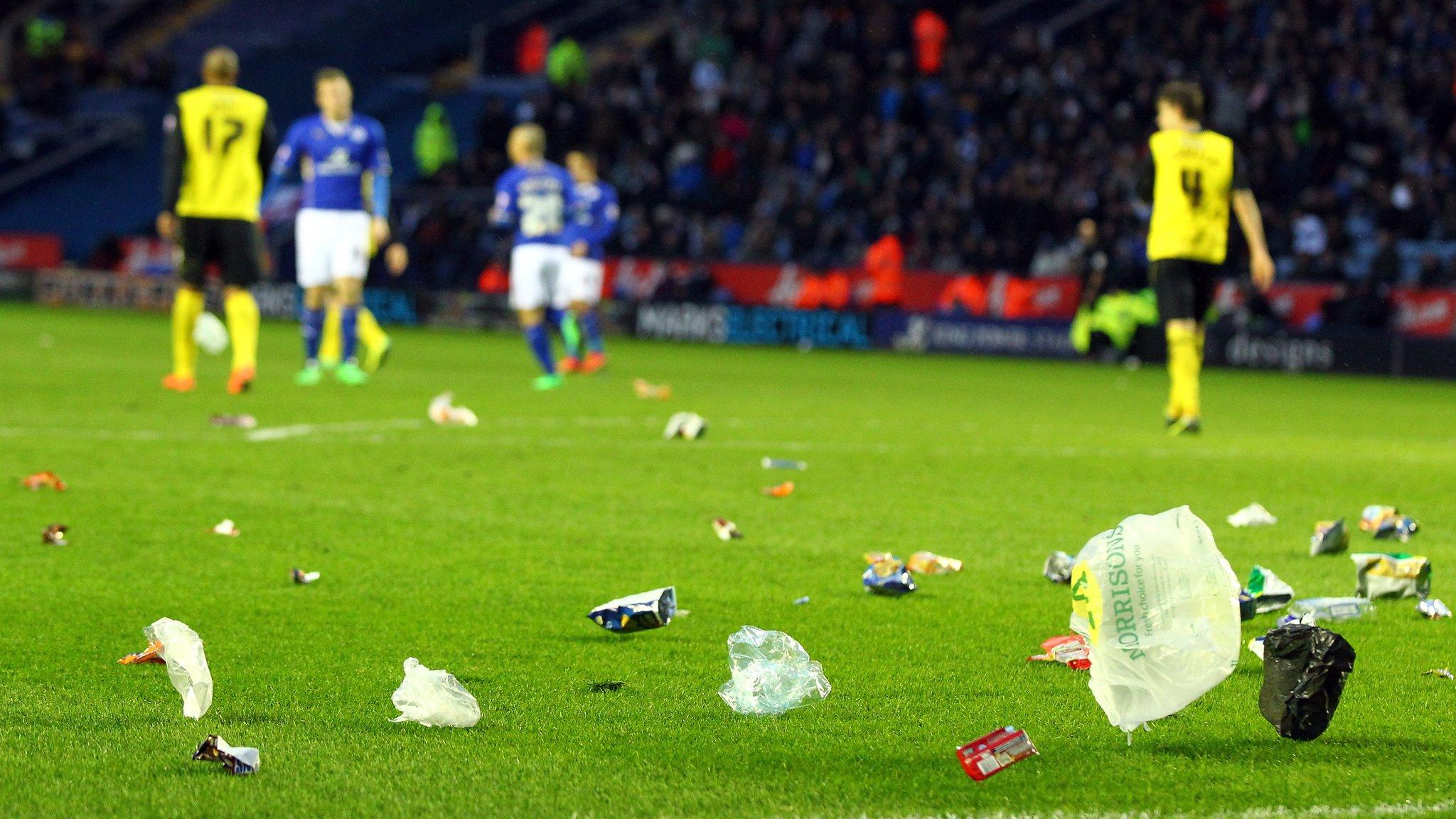
- Published26 April 2018
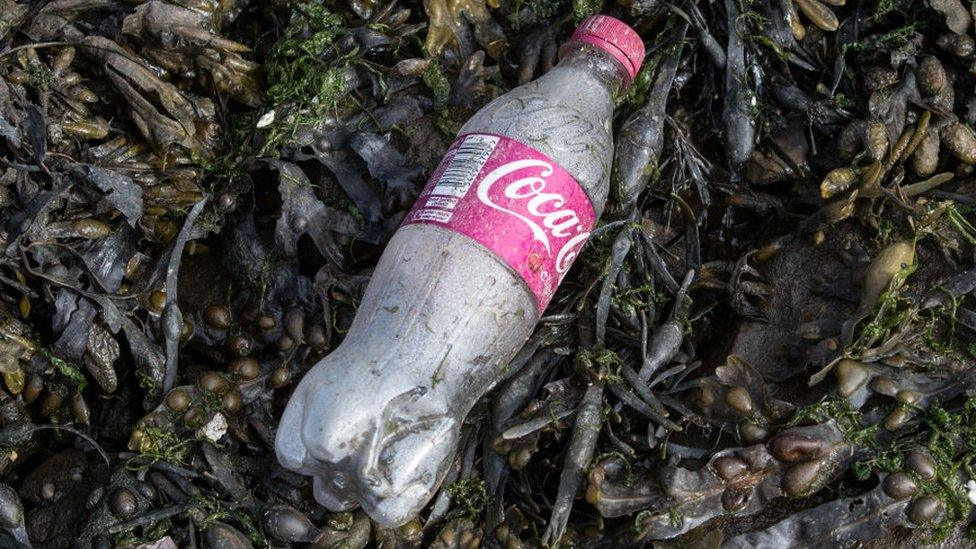
- Published14 January 2018
